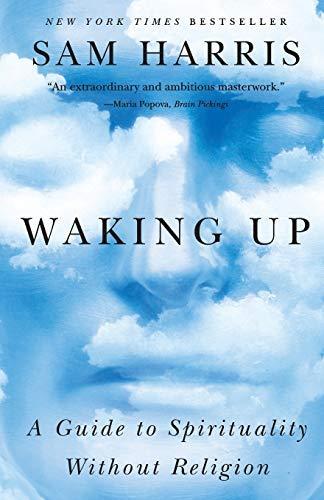Very sparse writing style. Often quite poetic, but sometimes too mundane.
User Profile
This link opens in a pop-up window
Amber Dickson's books
Currently Reading (View all 6)
User Activity
RSS feed Back
Amber Dickson rated Charlie's Birthday Present: 3 stars
Amber Dickson rated Finaly: 4 stars
Amber Dickson reviewed The End We Start From by Megan Hunter
Gosford Park meets Groundhog Day by way of Agatha Christie and Black Mirror – the …
Review of 'Seven Deaths of Evelyn Hardcastle' on 'Goodreads'
2 stars
To me, this book felt very convoluted and hackneyed. I was happy to finally finish it!
Amber Dickson rated Dark Emu: 4 stars

Philip Pullman: Northern Lights (His Dark Materials I) Tenth Anniversary 1995-2005 (2005, London Scholastic 2005.)
Northern Lights (His Dark Materials I) Tenth Anniversary 1995-2005 by Philip Pullman
In a landmark epic of fantasy and storytelling, Philip Pullman invites readers into a world as convincing and thoroughly realized …
Amber Dickson reviewed Unteachables by Gordon Korman
Amber Dickson reviewed Lost Man by Jane Harper
Review of 'Lost Man' on 'Goodreads'
4 stars
Rather slow family drama/mystery with a satisfying but unexciting ending.
Amber Dickson reviewed The Tattooist of Auschwitz by Heather Morris
Review of 'The Tattooist of Auschwitz' on 'Goodreads'
1 star
Badly written and badly conceived and romanticised novelisation of Lale Sokolov’s true story. Even the Auschwitz Museum has criticise it for its factual errors.
Amber Dickson rated Dog Who Saved the World: 4 stars
Amber Dickson reviewed Lincoln in the Bardo by George Saunders
Review of 'Lincoln in the Bardo' on 'Goodreads'
4 stars
Unlike any novel I've read before, this book is entirely composed of "quotes" from an assemblage of different voices. Some are excerpts from actual historical accounts while others are completely fictional, and they come together to narrate the events of a single night in 1862, when Willie, the 11-year-old-son of Abraham Lincoln, dies of a fever.
Although the style of prose was strange and took some getting used to, I was completely drawn into the author's vividly imagined world of the "Bardo" (a concept borrowed from Tibetan Buddhism): the stage between dying and the afterlife. In this case it seems the dead are destined for heaven or hell rather than reincarnation, but there are many who for various reasons won't move on, and linger in the bardo. They manifest as tormented ghosts who inhabit the graveyard where the young boy is interred, but they don't understand that they are dead. …
Unlike any novel I've read before, this book is entirely composed of "quotes" from an assemblage of different voices. Some are excerpts from actual historical accounts while others are completely fictional, and they come together to narrate the events of a single night in 1862, when Willie, the 11-year-old-son of Abraham Lincoln, dies of a fever.
Although the style of prose was strange and took some getting used to, I was completely drawn into the author's vividly imagined world of the "Bardo" (a concept borrowed from Tibetan Buddhism): the stage between dying and the afterlife. In this case it seems the dead are destined for heaven or hell rather than reincarnation, but there are many who for various reasons won't move on, and linger in the bardo. They manifest as tormented ghosts who inhabit the graveyard where the young boy is interred, but they don't understand that they are dead. In fact the place is teeming with bizarre and grotesque characters who each have a story to tell, and jostle to be heard by Willie in the hopes that he can help them return to "that previous place".
The tales are told in their own distinct voices, from the flowery and pompous to the vulgar and semi-literate, and are full of all the emotions of life and suffering of their deaths. Quite overwhelming for an eleven year old who wants only to be reunited with his father. Unfortunately, children are not meant to stay long in the bardo...
I found this "innovative" novel at times a little trying to get through (I'm not sure if the audiobook would be easier or not) but overall it was a rewarding read, humorous and very moving.
3.5 stars.
Amber Dickson rated So you've been publicly shamed: 3 stars

So you've been publicly shamed by Jon Ronson
"From the internationally bestselling author of The Psychopath Test, a captivating and brilliant exploration of one of our world's most …
Amber Dickson rated The Enchantress Returns: 2 stars
Amber Dickson reviewed Rosie Result by Graeme C. Simsion
Review of 'Rosie Result' on 'Goodreads'
3 stars
2.5 stars














